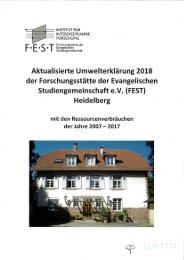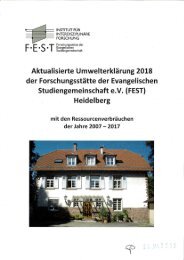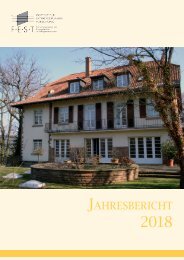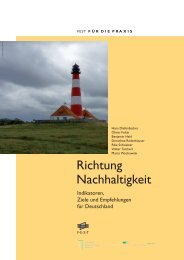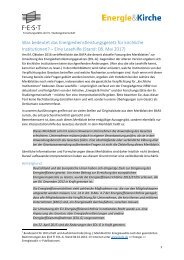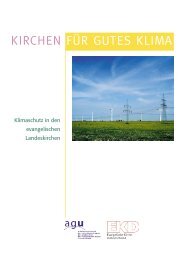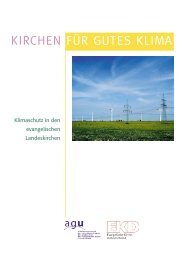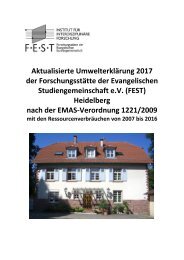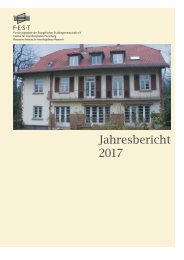FEST Jahresbericht 2020
Erfolgreiche ePaper selbst erstellen
Machen Sie aus Ihren PDF Publikationen ein blätterbares Flipbook mit unserer einzigartigen Google optimierten e-Paper Software.
Theologie und Naturwissenschaft
Democracy
as a
Form of Life
Magnus Schlette
Das German Pragmatism Network ist aus einer Arbeitsgruppe zum Thema
“Democracy as a Form of Life” hervorgegangen, die in Kooperation der FEST
mit dem Forschungsinstitut für Philosophie Hannover (FIPH) im Jahr 2017
begonnen wurde. Im Jahr 2020 wurde der Schwerpunkt “Democracy as a
Form of Life” im European Journal of Pragmatism and American Philosophy
gestaltet, der die Ergebnisse dieser Arbeitsgruppe dokumentiert.
Aus der Einleitung in den Themenschwerpunkt:
“Nowadays, Western societies find themselves in a situation that has been
coined as a “crisis of representation” or even as “postdemocracy”. The selfunderstanding
of western societies that is informed by the idea of its
citizen’s democratic participation in the shaping of the common good has
been severely tested by a growing disenchantment with politics. This expresses
itself not only in a growing disinterest in common decision-making but
also in an ominous interplay between a decreasing willingness to overcome
disagreements in procedures of discursive rapprochement and an emotionally
impregnated polarization of political opinions. […] This publication
intends to assess the potential contributions to political thought of classical
and contemporary pragmatist theory in conceptualizing the prerequisites of
democratic society. The classical pragmatist’s reflection on democratic society
was itself embedded in a situation of enduring political crisis caused by
a process of rapid modernization. Pragmatist susceptibility to contemporary
issues was confronted with democratic issues from the start and pragmatism
has contributed several insights to democratic thinking.
The concept of ‘life-form’ shall denote the fact that these insights concern
factors antecedent to political action and thereby transcend the field of
democratic theory in the strict sense […] pragmatists think about history
and future, nature and education, about truth and knowledge, art and religion,
freedom and obligation in terms of how they would have to be designed
in order to locate their objects within a democratic social body. Secondly,
they impregnate the various functional spheres of society and the logic of
communication in these spheres – not only the political sphere, but also
other spheres such as science, religion and the economy.”
62 Arbeitsbereich „Theologie und Naturwissenschaft“







